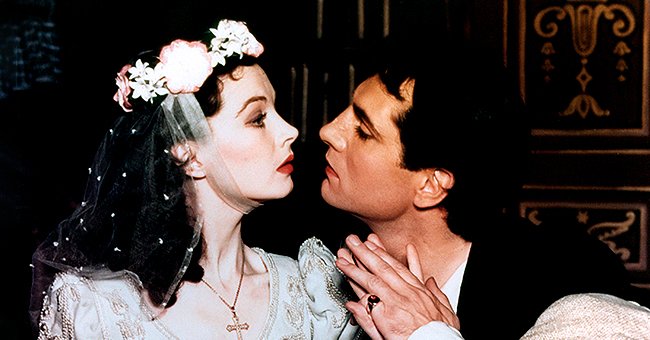
Vivien Leigh and Laurence Olivier's Dramatic Love Story
The love story of this couple is remembered as one of the most romantic, passionate, tragic and dramatic in Hollywood. The love letters exchanged by the couple found a few years ago, have revealed little-known details about their romance.
Vivian Leigh and Sir Lawrence Olivier met for the first time after a theatrical performance of the actress in London in 1936. Olivier went on to congratulate Leigh for her performance and fell in love.
Although the actor was married to actress Jill Esmond at the time and the actress was also married with a child, the couple was immediately attracted to each other.
VIVIAN LEIGH
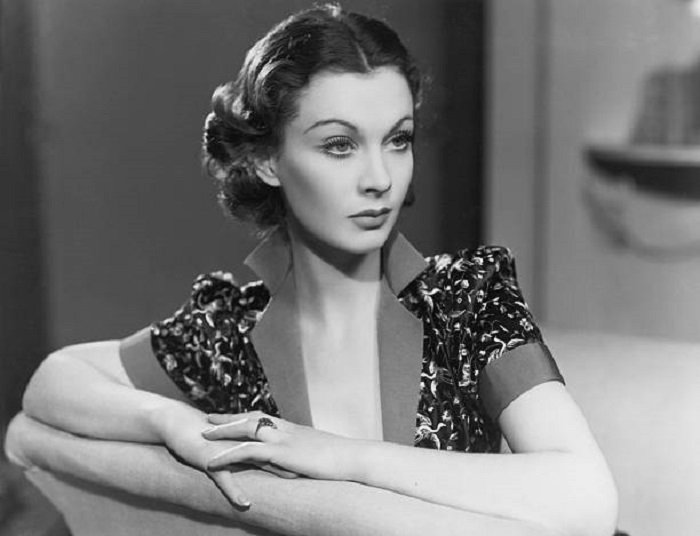
British actress Vivien Leigh at a photoshoot in London 1937 I Image: Getty Images
Born as Vivian Mary Hartley, in Darjeeling, India, on November 5, 1913, the future Hollywood actress had her first role at the age of three, reciting "Little Bo Peep" in her mother's amateur theater group.
Leigh's performance made her obtain film offers that quickly transformed the young actress into one of Hollywood's most promising and beloved stars.
Leigh was awarded two Oscar awards for best actress, for her roles as Scarlett O'Hara in "Gone With the Wind" and as Blanche DuBois in "A Streetcar Named Desire," a role she had already played in the theaters of the West End of London, in 1949.
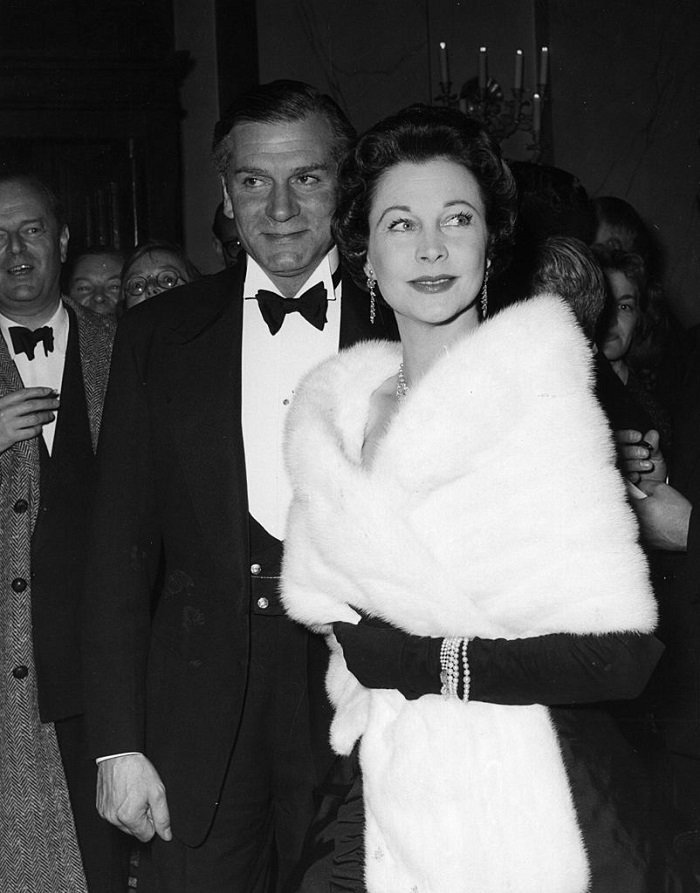
English actor and director Sir Laurence Olivier, with his second wife actress Vivien Leigh.I Image: Getty Images
SIR LAURENCE OLIVIER
Laurence Kerr Olivier was born in Dorking, Surrey, England, on May 22, 1907. During his life, he worked on 120 plays, 60 films, and 15 television series. He received the Oscar Award in 1979 for his entire professional career.
At age 10, Olivier drew attention when he played Brutus in the play “Julius Caesar” by Shakespeare. Seven years later he interrupted his studies at Oxford, to study Dramatic Art in London.
The young actor soon became a Shakespeare specialist, becoming one of the main figures of the Old Vic Theater company, while developing a career as a film actor in several British films.
He arrived in Hollywood and became an actor in romantic films due to his Heathcliff character from "Wuthering Heights" and his Max de Winter act in "Rebecca" by Alfred Hitchcock. He gained fame as a very versatile actor of solid interpretations marked by a personal psychological style.
A ROMANCE BEGINS
Leigh developed a passion for acting and changed her stage name after her wedding with her first husband, Herbert Leigh Holman, a lawyer who didn't like theater. The husband's disapproval of her love for the theater was only one of the problems they had to face.
This would lead to a love story between Leigh and Olivier, where she was enveloped in Olivier's "charm and magnetism," and he was attracted to her in a way he wasn't with any other woman.
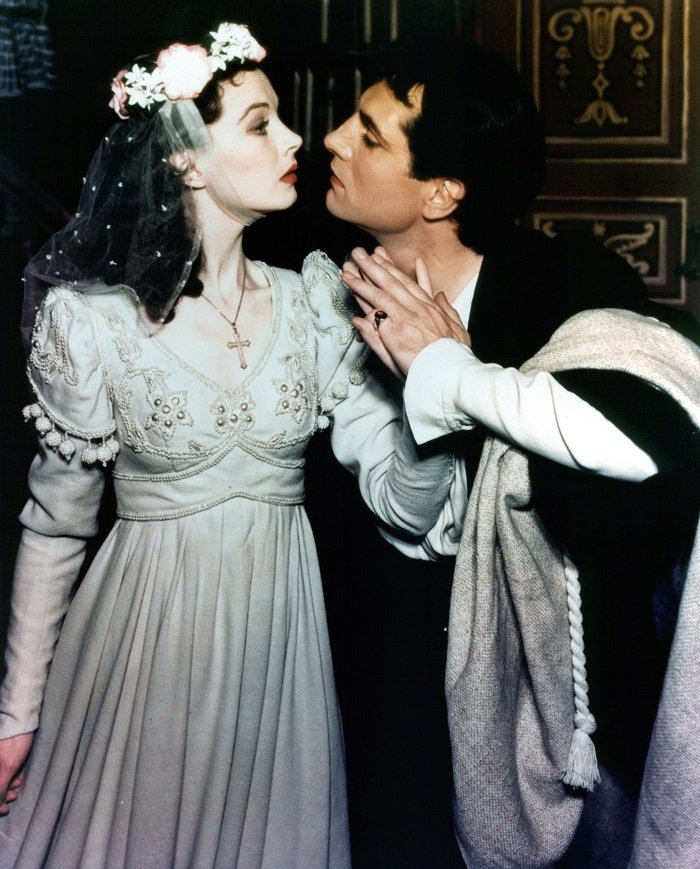
Vivien Leigh prepares to kiss Laurence Olivier in a scene from a stage production of 'Romeo and Juliet', 1940 I Image: Getty Images
Both were married to other people and terrified that their clandestine involvement would kill their Hollywood careers, but they couldn't help being in love with each other.
Olivier had married Esmond, the daughter of two well-known British actors. However, the marriage had very little physical intimacy because Esmond preferred women, according to the 1992 Laurence Olivier Biography.
ROMANCE BECOMES PUBLIC
The Old Vic theater in London chose Olivier as the protagonist in “Hamlet” in 1937, and Leigh went to the play several times. The lovers starred against each other in "Fire Over England," and traveled to Denmark to play "Hamlet" together.
When they returned to England, they informed their respective spouses that their marriages had ended and moved in together in Iver, Buckinghamshire. The couple spent a month when Olivier moved to Hollywood to film "Wuthering Heights" in 1938.
Leigh joined him in California a month later. Unable to have enough of each other, the couple also looked for ways to be together professionally.
Both were disappointed when the producer of "Gone With the Wind," chose Olivier, but not Leigh, for his next project, "Rebecca" by Hitchcock, arguing that it was better for both of them to keep their romance off the screen until the divorce was completed.
GETTING MARRIED
During their time apart, Leigh and Olivier exchanged passionate love letters. According to The Guardian, in an undated, Olivier wrote, “I woke up absolutely raging with desire for you my love… Oh dear God how I did want you. Perhaps you were stroking your darling self.”
Leigh responded, writing, “Oh dear sweet, I haven’t done anything… If we loved each other only with our bodies I suppose it would be alright. I love you with much more than that. I love you with, oh everything somehow, with a special kind of soul.”
Leigh and Olivier married in August 1940, in Rancho San Ysidro, Santa Barbara, after getting their divorces in February of the same year. The couple returned to England shortly after, where Olivier was stationed with the Royal Air Force, for World War II.
Sources close to the couple at that time saw that the marriage already had problems: Leigh had developed a problem with drinking and Olivier seemed bored of her constant need for affection.
MARRIAGE STRUGGLES
Leigh and Olivier starred in films such as "21 Days Together" and "That Hamilton Woman," as well as a theatrical performance of "Romeo and Juliet" on Broadway. This last project was a complete failure, where the couple risked much of their savings. Critics related the adulterous beginning of their romance with the work.
Shortly after a tour to North Africa, in 1944, Leigh became ill with cough and fever attacks and was soon diagnosed with tuberculosis in her left lung. The actress spent several weeks in the hospital, during which time Olivier wrote to her constantly.
Although she was advised to stop acting, Leigh continued with her passion. While filming "Caesar and Cleopatra" in 1945, Leigh learned that she was pregnant, but soon suffered a miscarriage. This led to a deep depression.
MENTAL ILLNESS
When Olivier left Leigh behind in England, she began to show the first signs of mental illness. Because there was no diagnosis or treatment for this disorder at the time, Leigh did not receive help for her condition.
During the filming of the 1938 film "A Yank in Oxford," Leigh suffered frequent mood swings and gained a reputation as an unreasonable and difficult actress to work with.
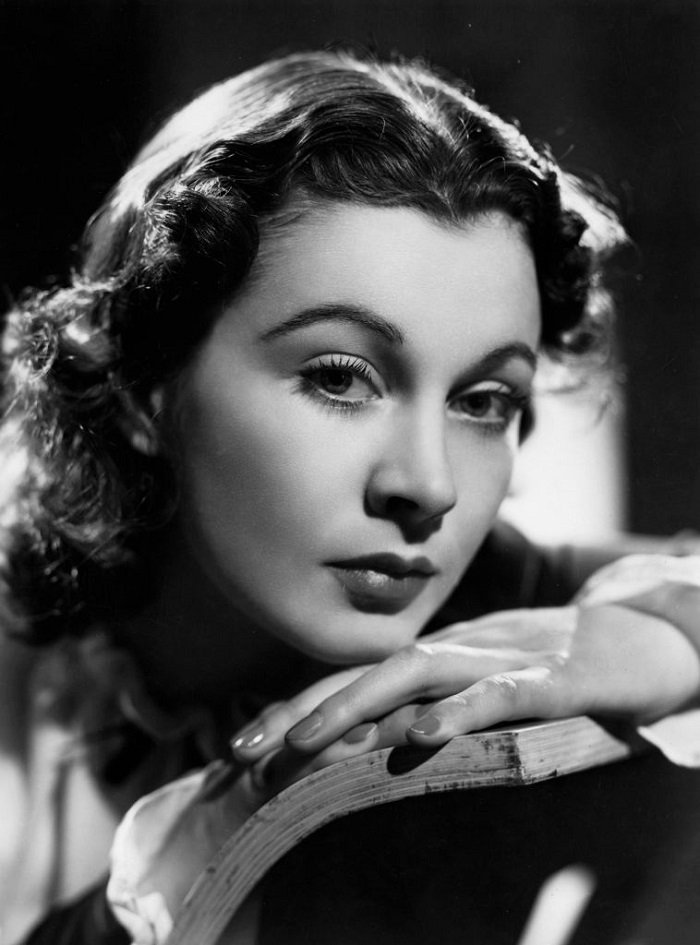
Vivien Leigh as she appeared in the play 'Serena Blandish' at the Gate Theatre in London, 15th September 1938 I Image Getty Images
By then, Leigh had learned to recognize her symptoms before an episode of bipolar disorder, which involved several days of hyperactivity followed by days with deep depression and finally a collapse consisting of tremors and swearing rants.
COUPLE’S CAREER
Although Leigh was not yet ready to return to work, Olivier's career shot up and he went on tour for theatrical performances of Henry IV and Oedipus. Olivier was later knighted, which gave Leigh the title of Lady Olivier. This turned out to be a turning point in marriage, as Olivier prospered and Leigh's depression worsened.
BEGINNING OF THE END
In 1948, Leigh and Olivier went on a six-month tour of Australia and New Zealand to act and raise funds for the theater. The actress dedicated herself to her career and did everything possible to keep up with the tour, despite suffering from severe insomnia at that time and being replaced by her alternate in some functions.
Olivier and Leigh used to have heated discussions about their mood swings, which were increasingly difficult for Olivier to handle. The worst happened when Leigh refused to take the stage with Olivier because she had no shoes.
Frustrated with her behavior, Olivier slapped Leigh in the face in front of the crew and she struck him back. Minutes later, she was on stage with borrowed shoes and a smile on her face, but Olivier would later realize that he "lost Vivien" at that moment.
They met Australian actor Peter Finch, with whom Leigh would have a long-standing adventure during the trip. Olivier, not knowing about their romance, gave Finch a contract with his producer, which gave the actor a reason to move to London.
BREAK DOWN
Leigh and Olivier did not give up on their marriage. The couple continued to appear together on stage, but their performances suffered as a result of their growing lack of chemistry. In 1956, during the production of "South Sea Bubble," Leigh learned that she was pregnant and withdrew from the play.
But the actress suffered another miscarriage, sending her into another period of depression that lasted several months. By 1958, having kept up appearances for almost 10 years, Leigh felt that her marriage was over.
FINAL YEARS
She began dating actor Jack Merivale at the same time that Olivier began an affair with actress Joan Plowright, who was 22 years younger than him. By 1960, Leigh threatened to commit suicide; the pressure of her career and instability in her romantic relationships only worsened her emotional and mental state.
Her final film was "Ship of Fools" of 1965. Leigh was very sick at the time and often fell into attacks of paranoia and fought with the other actors. Her fragile state of mind made every day of filming very difficult, but she managed to finish and the film received rave reviews.
LEIGH’S DEATH
In 1967, the actress's tuberculosis reappeared and she was put to bed rest for several weeks. One night, her husband, Jack Merivale, found Leigh asleep in bed. Half an hour later, he returned to find her body on the floor.
Apparently, Leigh had tried to walk to the bathroom and collapsed because her lungs were filled with fluid. Merivale alerted Leigh's family and then Olivier, and moved her body over the bed.
Olivier helped Merivale make arrangements for the funeral and stayed with Leigh until the body was taken away. On July 8, Vivien Leigh's death was announced, and each theater in London's West End turned off its lights for an hour in her honor.
OLIVIER’S DEATH
Olivier died of kidney failure on July 11, 1989, at his home in West Sussex; he was 82 years old. Even after being married to Plowright, Leigh remained in Olivier's heart for the rest of his life. It has been said that shortly before he died, Olivier watched a movie starring Leigh, and with tears in his eyes, said: "This, this was love."
